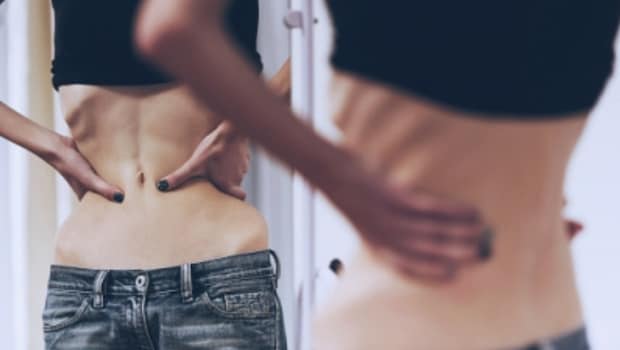Are You A Healthy Eater Or Is It Orthorexia?

According to the National Eating Disorders Association (NEDA), orthorexia often involves rigid rules, food-related anxiety, and social isolation.

Are You A Healthy Eater Or Is It Orthorexia?
Choosing healthy food is often considered a sign of discipline and self-care. But when this desire turns into an obsession, it might be something more serious, orthorexia nervosa. Unlike other eating disorders that focus on the quantity of food, orthorexia is an unhealthy fixation on the quality and purity of food. While not officially recognised by the DSM-5 (Diagnostic and Statistical Manual of Mental Disorders), growing awareness among psychologists and nutritionists worldwide suggests that orthorexia is a rising concern, especially in health-conscious societies. So how do you know if you’re eating healthy, or crossing the line?
Understanding orthorexia and how it differs from clean eating
Orthorexia starts with good intentions, avoiding processed foods, sugar, or additives, but escalates into an unhealthy obsession. According to the National Eating Disorders Association (NEDA), orthorexia often involves rigid rules, food-related anxiety, and social isolation. While clean eating promotes balance, orthorexia lacks flexibility, causing stress, malnutrition, and emotional distress despite appearing “healthy” on the surface.
1. You obsessively read nutrition labels
While it’s wise to understand what goes into your food, orthorexic individuals may spend hours scrutinising every label, ingredient, and sourcing detail, often rejecting food not meeting self-imposed purity standards.
2. You avoid entire food groups without medical reasons
Cutting out gluten, dairy, or carbs without allergies or intolerances may be a red flag. Orthorexia can lead people to eliminate foods not because of symptoms but based on misinformation or fear.
3. Eating “clean” gives you a sense of superiority
Feeling morally “better” than others for your food choices is another sign. Orthorexia can create a divide between “good” and “bad” eaters, increasing social judgment and personal guilt around food.
4. You feel anxious when “healthy” food is unavailable
People with orthorexia often experience anxiety, guilt, or distress if they have to eat outside their dietary rules, such as at social events, family meals, or restaurants.
5. Your food rules affect your relationships
Skipping gatherings or being overly rigid about where and what you eat may indicate that orthorexia is impacting your quality of life and isolating you socially.
6. You spend excessive time planning meals
If a significant part of your day revolves around planning, sourcing, or preparing food with perfect standards, it may be more than just a healthy habit.
7. You ignore hunger cues to stick to food purity
Listening to your body is essential for well-being. People with orthorexia often ignore hunger or fatigue if they can’t find food that meets their standards, prioritising purity over nourishment.
8. You’re underweight or facing nutrient deficiencies
Ironically, orthorexia can result in undernourishment. Eliminating too many foods might lead to deficiencies in protein, iron, B12, and healthy fats, impacting your overall health despite “eating clean.”
What to do if you think you have orthorexia
If your eating habits are driven more by fear than by nourishment, it’s time to pause. Seek help from a psychologist, dietitian, or a specialist in eating disorders. According to NEDA, early intervention improves recovery outcomes. Mindful eating, therapy, and balanced nutrition can help you reclaim a healthy relationship with food, body, and life.
Orthorexia blurs the line between wellness and obsession. While being mindful of food is admirable, it should not control your happiness or isolate you. A truly healthy eater embraces flexibility, balance, and emotional well-being. If your eating habits are starting to limit your joy, reach out, because health is not just what you eat, but how you live.
Disclaimer: This content including advice provides generic information only. It is in no way a substitute for a qualified medical opinion. Always consult a specialist or your own doctor for more information. NDTV does not claim responsibility for this information.






